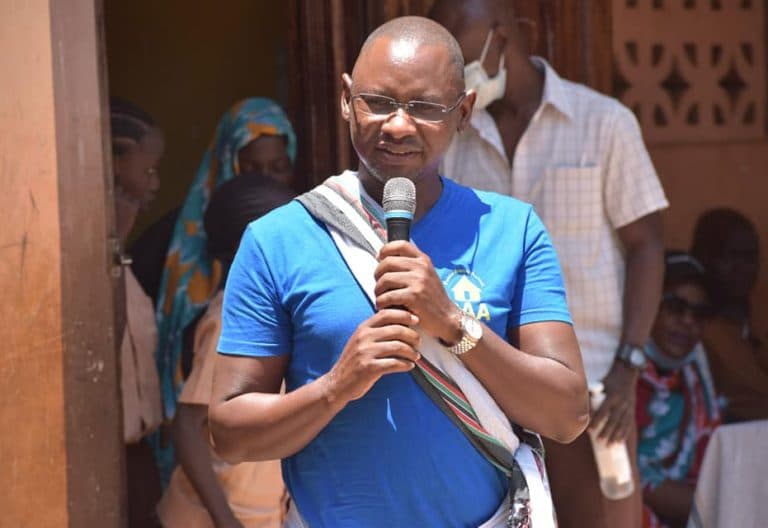We're loading the full news article for you. This includes the article content, images, author information, and related articles.
The appointment of the Senate Speaker’s brother to the powerful salaries commission raises critical questions about political influence, potential conflicts of interest, and the integrity of Kenya's independent constitutional bodies.

President William Ruto has appointed Michael Thoyah Kingi, an engineer and former Member of Parliament for Magarini, to the Salaries and Remuneration Commission (SRC) for a six-year term. The appointment, confirmed in a Kenya Gazette notice dated Friday, 14 November 2025, has ignited a national debate on nepotism, conflict of interest, and the independence of crucial state institutions.
Mr. Kingi is the brother of Amason Jeffah Kingi, the current Speaker of the Senate and a key political ally of President Ruto within the ruling Kenya Kwanza coalition. This familial tie to the head of one of the houses of Parliament, an institution whose members' salaries are determined by the SRC, has become the central point of concern for governance watchdogs and opposition figures.
The SRC is a powerful constitutional body established under Article 230 of the Constitution of Kenya. Its primary mandate is to set and regularly review the remuneration and benefits of all state officers and to advise the national and county governments on the pay of all other public officers. This role is critical to managing Kenya's public sector wage bill and ensuring fiscal sustainability. Given its influence over the public purse, appointments to the commission are subject to intense public and parliamentary scrutiny.
Mr. Kingi's journey to the commission involved a vetting session before the National Assembly's Labour Committee on Tuesday, 21 October 2025. During the hearing, Members of Parliament questioned him extensively on his political neutrality and the potential for undue influence from his brother, the Senate Speaker. Mr. Kingi assured the committee that he is not a member of any political party and would execute his duties independently. He stated he had left the Pamoja African Alliance (PAA) party, on whose ticket he ran in 2022, after losing his re-election bid for the Magarini parliamentary seat.
Michael Thoyah Kingi is an engineer by profession, holding a Bachelor of Science in Civil Engineering from Jomo Kenyatta University of Agriculture and Technology and a Diploma in Civil Engineering. His professional career includes roles as Managing Director of the Malindi Water and Sewerage Company and various positions at the Kilifi Mariakani Water and Sewerage Company.
He served one term as the Member of Parliament for Magarini Constituency from 2017 to 2022, having been elected on an Orange Democratic Movement (ODM) party ticket before his later association with PAA. During his vetting, he argued that his engineering background, which involves data analysis, makes him well-suited for the data-driven work of the SRC, such as conducting job evaluations and labour market surveys.
The appointment process for an SRC commissioner, as outlined in the SRC Act of 2011, requires nominating bodies to conduct a competitive and transparent process. Mr. Kingi was nominated by the Parliamentary Service Commission (PSC) to represent it at the SRC. The PSC is a constitutional commission that, by its composition, includes the Speaker of the Senate—Amason Kingi—as a member. This has raised further questions about potential conflicts of interest in the nomination process itself, preceding the presidential appointment.
Critics of the appointment argue that it is part of a broader pattern of political patronage that could undermine the independence of constitutional commissions, which are designed to be impartial and free from executive or political influence. Chapter Six of the Constitution on Leadership and Integrity explicitly requires that decisions on appointments be objective and not influenced by nepotism or favouritism.
The relationship between the SRC and Parliament has historically been contentious, particularly over attempts by MPs to increase their own salaries and allowances against the commission's advice. Placing a direct relative of the Senate Speaker on the commission could be perceived as a move to soften the SRC's stance or create a more compliant body, thereby compromising its ability to act as a check on the public wage bill.
In his defence during the vetting process, Mr. Kingi pledged to prioritize transparency and accountability. He also addressed the persistent issue of 'ghost workers' on the public payroll, suggesting that an integrated digital system linking HR and payroll data across government could enhance accountability, a significant challenge the SRC continues to grapple with.
As Mr. Kingi begins his six-year term, his performance will be closely monitored by the Kenyan public and civil society. The appointment serves as a critical test for the Ruto administration's commitment to upholding the independence of constitutional bodies and adhering to the principles of good governance and transparency. The primary concern remains whether a commissioner with such close political and familial ties can act impartially in a role that directly impacts the remuneration of his brother and his parliamentary colleagues.
Keep the conversation in one place—threads here stay linked to the story and in the forums.
Sign in to start a discussion
Start a conversation about this story and keep it linked here.
Other hot threads
E-sports and Gaming Community in Kenya
Active 9 months ago
The Role of Technology in Modern Agriculture (AgriTech)
Active 9 months ago
Popular Recreational Activities Across Counties
Active 9 months ago
Investing in Youth Sports Development Programs
Active 9 months ago
Key figures and persons of interest featured in this article